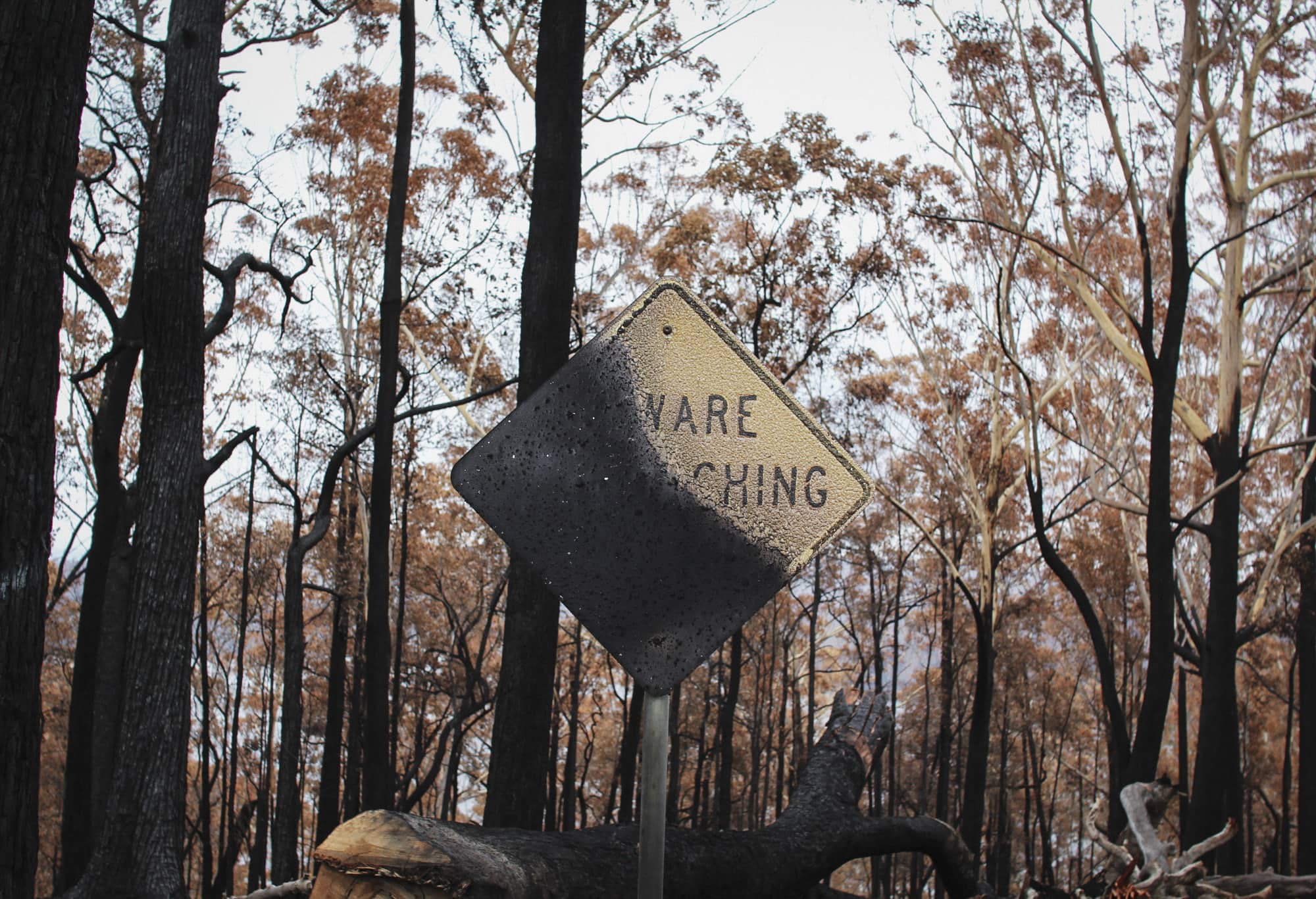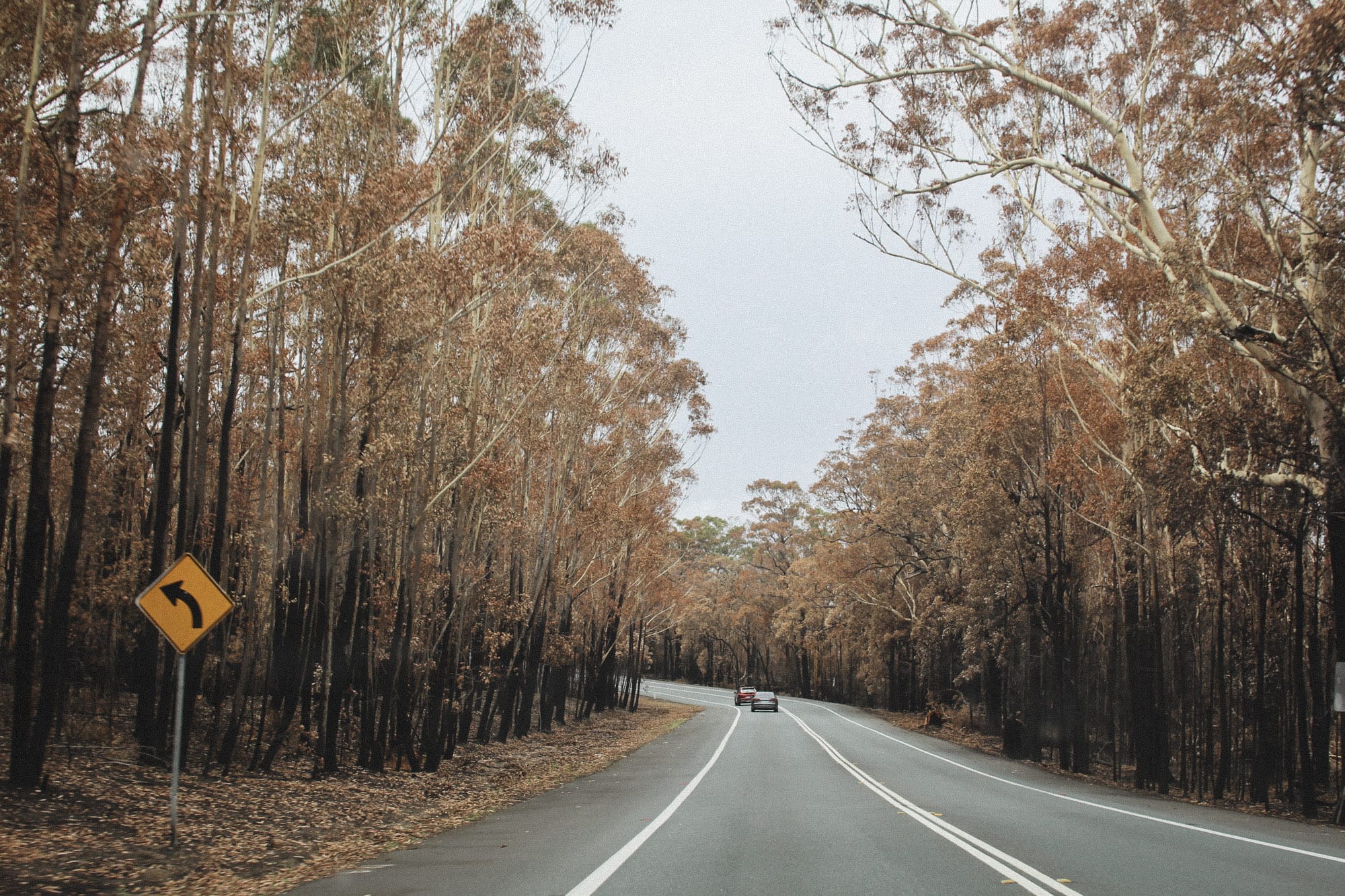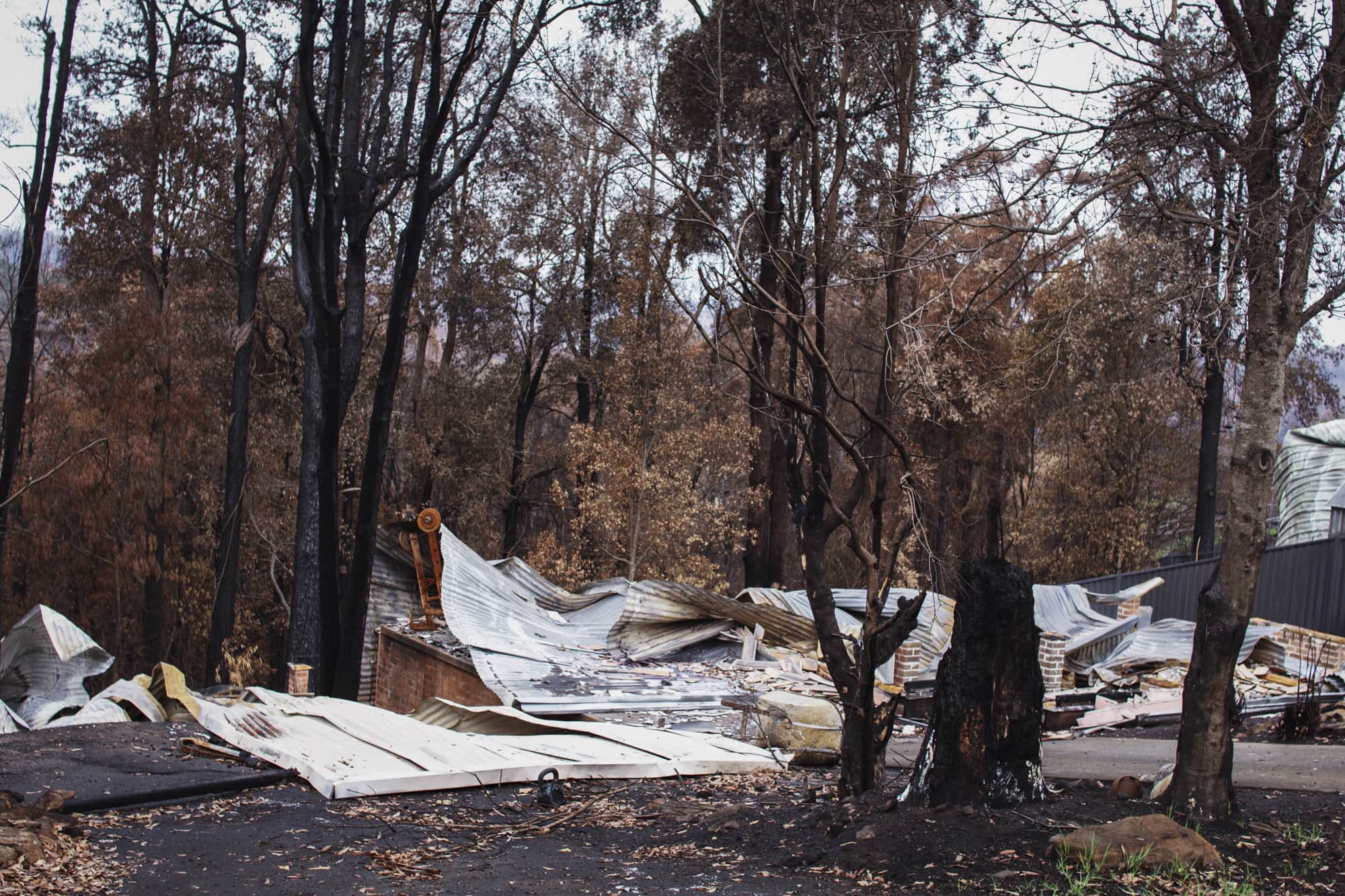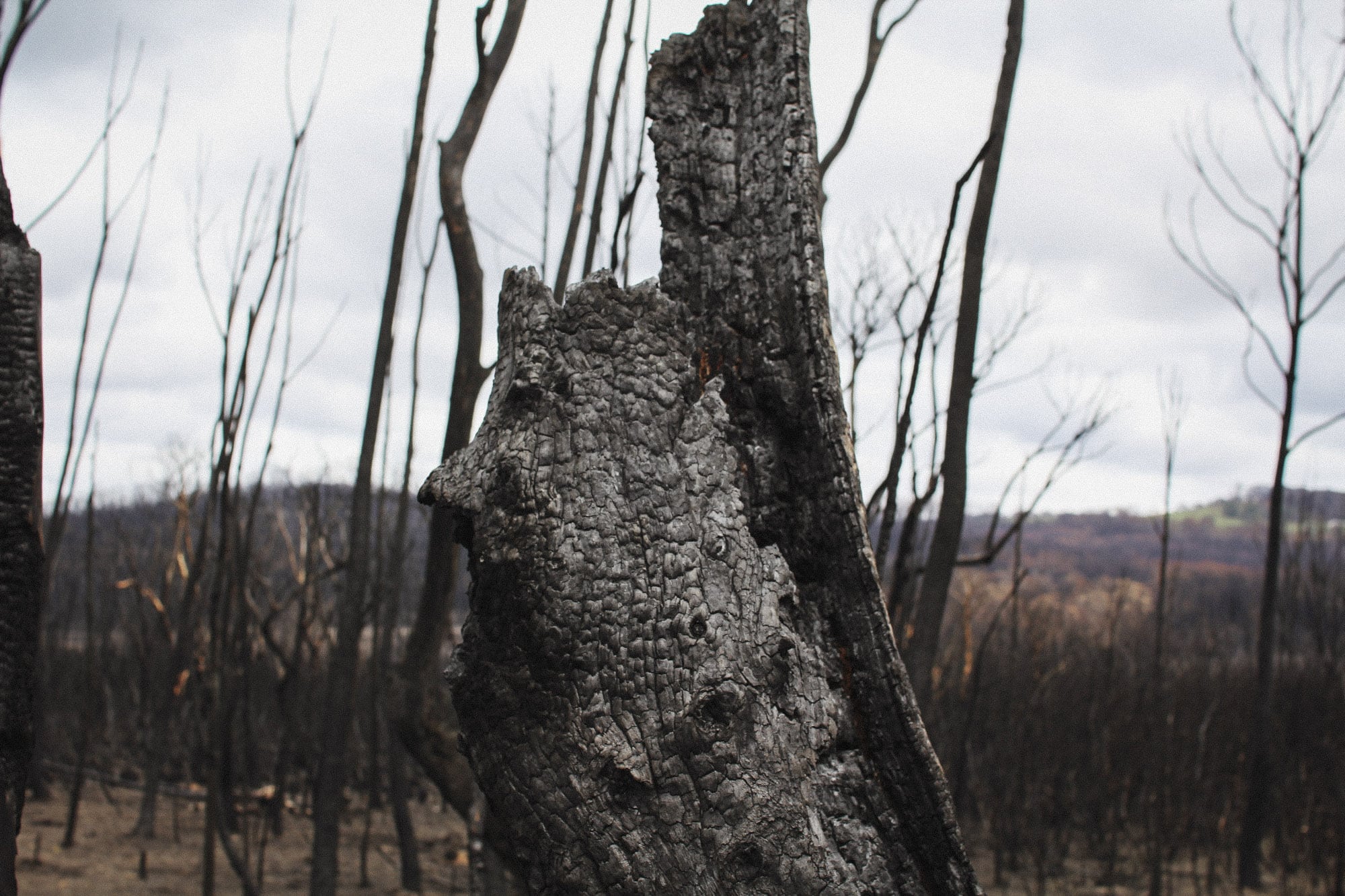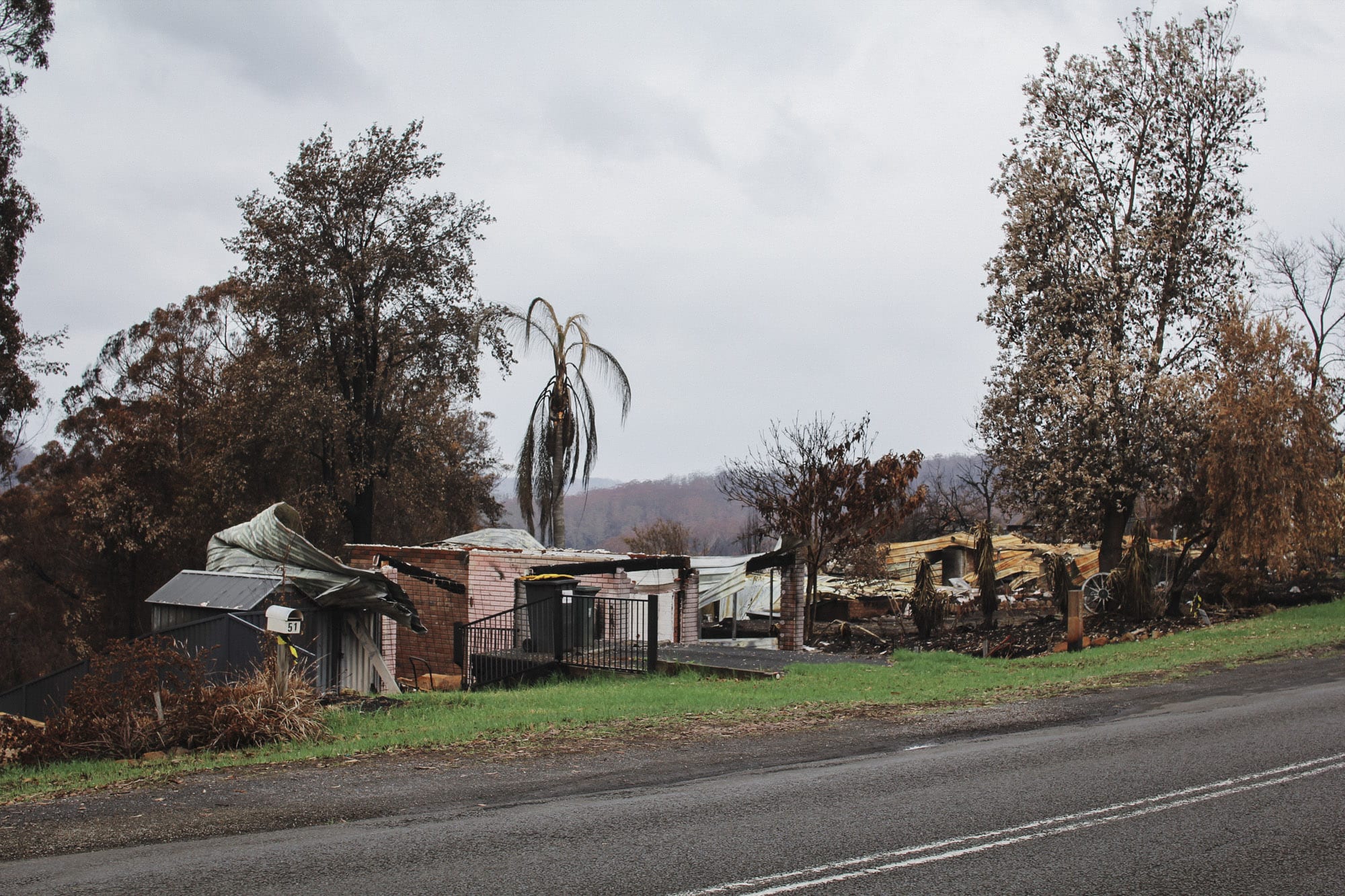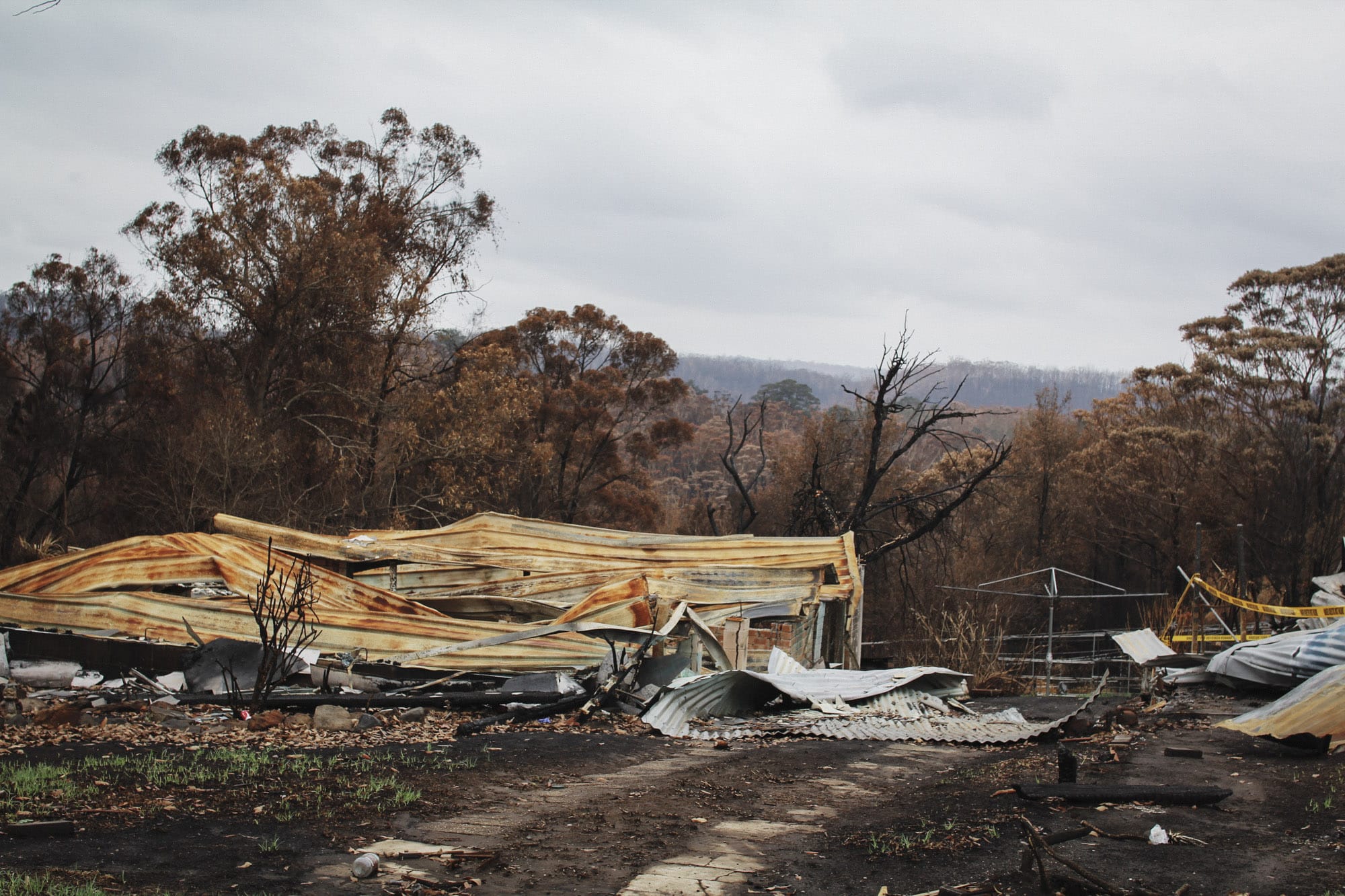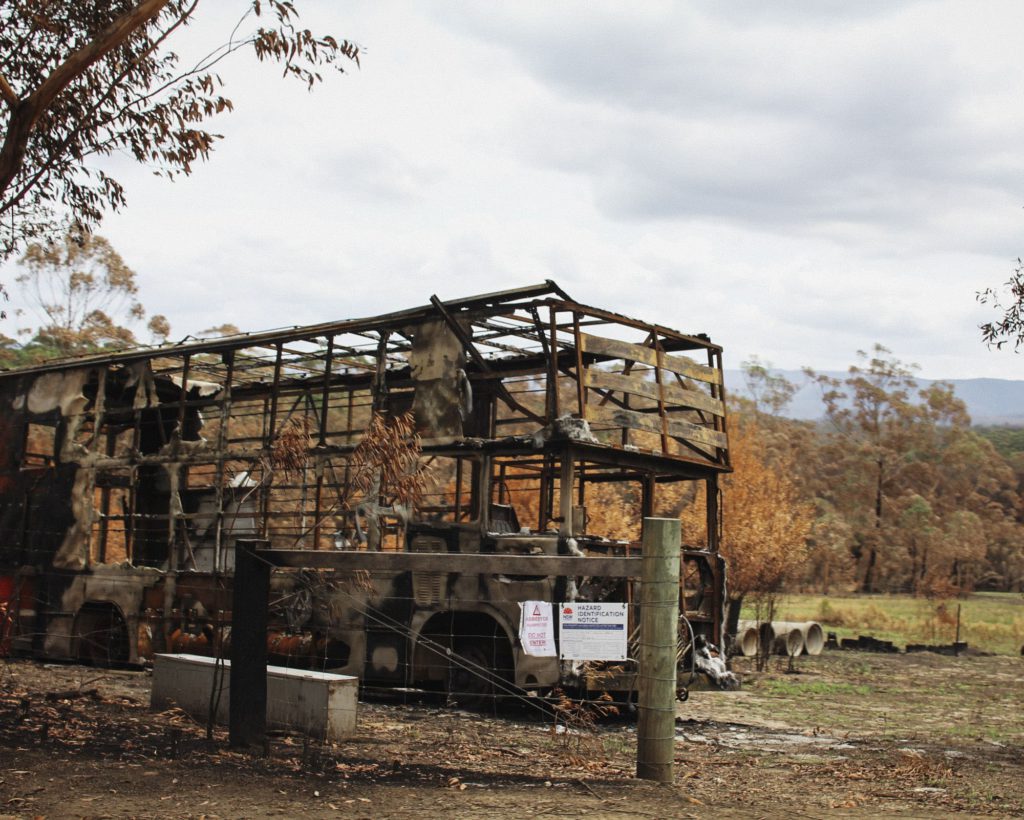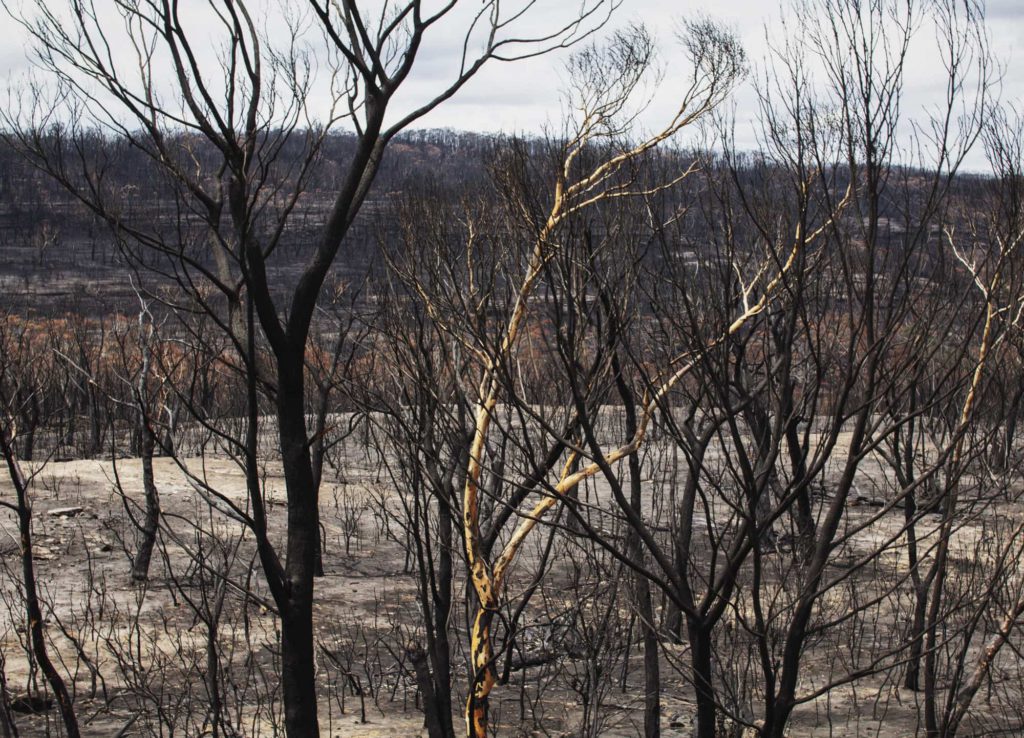Visiting Lake Conjola for Rebuild Together
6 February 2021

Sunday night, the day before the first day back at work for 2020, I sent Lauren a word doc with an idea. I wanted to create a platform that would connect those who have been affected by the recent bushfires with people who could help. An airtasker for volunteering.
Within a week, we had a brand, a prototype and a few contacts who would be keen to use it. But the only information I had was from media and facebook groups. I didn’t really know what it was like in these affected communities. And if this platform was going to be successful, we had to get on the ground. It’s one thing to create a website or service from the comfort of Melbourne, relying only on media sources for information. But to truly understand the situation and rebuilding process, we had to speak to people in person and experience the rebuilding process first hand. We decided to visit Lake Conjola, a small coastal surf town that was one of the hardest hit by the fires. Myself and Holly, a service designer from the Red Cross, decided to make the trip.
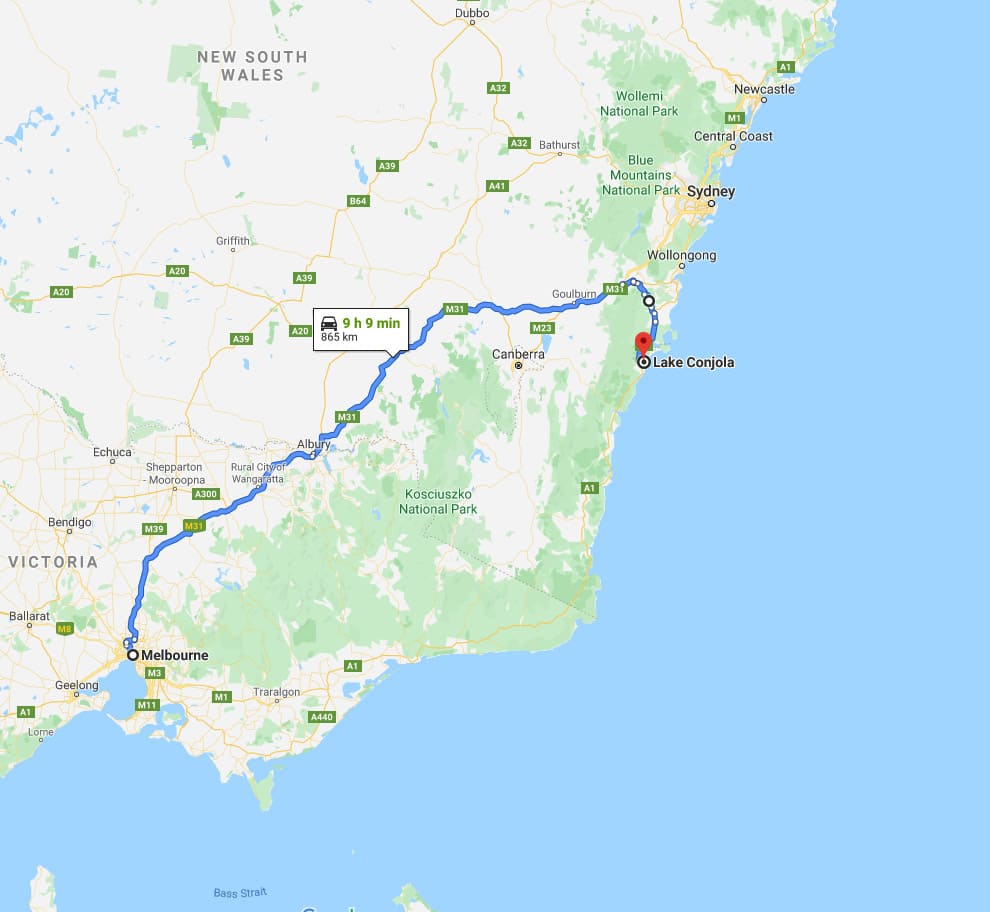
The drive from Melbourne to Lake Conjola

The long drive gave us time to see the extent of the drought in Australia. It also gave us time to listen to some community talkback radio and hear stories from people who experienced the destruction of the fires.
A Long Drive.
After a 10 hour drive from Melbourne, we arrived at Lake Conjola a few minutes shy of midnight. Conjola is a small community with a population of around 500 people. But during summer, it is packed with families enjoying the beautiful lake and surf. Fires tore through the town on the morning of New Year’s Eve – destroying nearly 100 homes.
In the morning we met up with some local members of the community. They have been integral parts of the rebuilding process and key members of the community. This first meeting taught us a lot about the current situation in the town and how tasks are currently managed. I initially thought that the town would be in desperate need of volunteers, especially from outside the town. But I soon discovered that it was far more complex than my initial assumptions.
-
Although volunteers are important, they can also hinder efforts as delegating tasks is hard with low resources.
-
Properties that have been destroyed are now in a long process with insurance.
-
Asbestos is a big issue.
-
The rebuilding phase is a long process. Getting permits to rebuild, navigating the insurance system seems to be a big stress for people.
-
Local community is very strong and have good communication. Those who have been affected rely on their own networks and the people in the community.
-
People are in shock and many have not coped with the disaster. Counselling and mental health help will be needed.
-
There is also a liability issue with people working in potentially dangerous environments without insurance or checks.
They showed us photos of when the fires hit and the massacre it left in its wake. They retold events of peoples houses being completely engulfed within 2 minutes of seeing flames and watching residents driving into the lake to escape the flames.
We then drove around the town and out the single road leading into Lake Conjola. There is only one road in and out of the town. As fires swept through parts of the region causing trees to fall on the road. People trying to leave were stuck in long lines of traffic. Some waiting to leave spent 24 hrs in their cars.

Driving into Lake Conjola
A Family Lost Everything.
As we exited the main town centre we began to see the extent of the fires. Signs had been melted and nothing but charred eucalypt trunks lined the roads. As we approached the ridgeline, we saw the full extent of the fire damaged homes. It looked like a cyclone had torn through a strip of 20 or so houses. Nothing was left except mangled tin, crumbled brick and car skeletons.
We pulled over to take some photos. A man with his family pulled up in front of one of the destroyed houses. I walked over to him to ask a few questions. His house was completely destroyed, nothing was upright except a torched letterbox. He had his son (8), daughter (10) and wife in the car. The daughter was weeping while we spoke. But, surprisingly, they were in high spirits. They said that the most important thing was that they were all safe. They had been provided accommodation in Lake Conjola and received the $5k disaster relief package from the Red Cross.
If your home has been destroyed in a bushfire since July 2019, you can apply for an emergency grant. A grant of $10,000 is available per household. Grants will be open until 30 April 2020. Red Cross
They were very grateful for the NSW government agreeing to clean up all properties damaged in the fire for free. Unlike some, they were insured. I asked if there was some way that volunteers could assist his family. He said that it was now just a waiting game. Waiting to rebuild their lives. The main problem he could foresee was the likelihood that insurance companies would deem the area a high fire risk – which would mean his property would be uninsurable for fire damage if he were to rebuild. Something that many people in the area are facing.
Research published by the Victorian government in 2017, estimated just 46% Victorian households have enough insurance to recover from a disaster, with 28% underinsured and 26% having no insurance.

- The home of the family we spoke with
- The home next door.
Backstreet Fire Fighting.
We drove out of Conjola and onto the highway. Down the road was a local hardware and produce store. A place which became a lifeline for those in the area fighting the fires and rebuilding. We spoke with the owner who told us about the last few weeks. During the fires, they sold out of pumps and hoses as residents banded together to fight the fires in the area. There was a crew of young lads fitting water tanks and pumps to their utes, driving down farm roads fighting fires on their own. They knew the area like no one else and could fight fires in areas unreachable by fire trucks. They saved countless acres of land, fences and properties.
We jumped back on the highway back to Conjola, stopped into the local cafe before visiting the local community centre to grab a coffee and some lunch. This is usually the busiest time for the area but now it resembles closer to a ghost town. Although the damage from the fire is incomprehensible, the damage spans far beyond the structures themselves. Lake Conjola, like many towns along the east coast of Australia, rely on busy tourist season during summer. The economic impact of the fires will last years.
Tourism has taken a significant hit during what is normally peak season. Tourism bodies say it will cost hundreds of millions of dollars to rebuild.
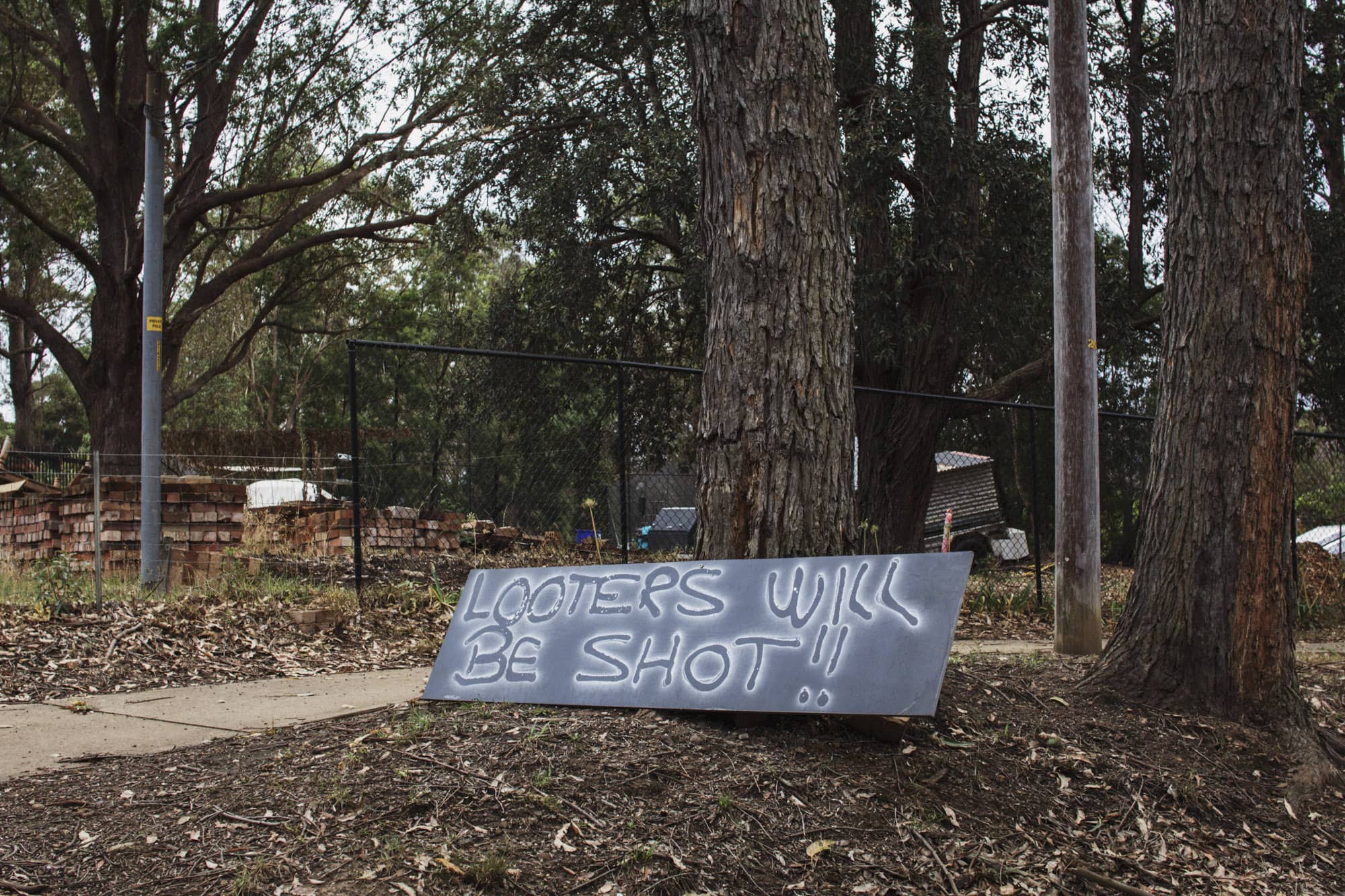
We had many reports of people looting while residents evacuated.
- Sign pinned up outside destroyed properties.
- Some areas still had leaves, others had nothing left.
The Community Centre.
We walked across the road from the cafe to the Community centre. The centre has been the central hub for rebuilding. Two shipping containers filled with water and donations lay outside. Inside the hall, narrow isles had been made between boxes of donations and supplies. This had become the central hub for information and organising. We met with two key members of the communities rebuilding efforts. Amongst the piles of supplies rest a small fold up table used as a desk. We sat with one of the women who has been organising tasks within the community, liaising with local tradies and volunteers. Members of the community have been contacting the centre by phone, Facebook or in-person to ask for assistance. The team has spent the past 2 weeks trying to get as much work done for the community as they could. From removing fallen trees to distributing supplies. All of which has been managed on a spreadsheet and a notepad.
It was incredible to witness the level of empathy, compassion and leadership of people in the community.
Out of everyone that we met, they could all see the benefit of a platform such as Rebuild Together. A central database of people who needed help and those who could help them. But it had to meet some recurring criteria.
-
It had to be easier than scrolling through Facebook to find people who can help and connecting them with those who need it.
-
It had to be simple, quick and effective.
-
It had to be local.
-
It needed to facilitate community involvement and reduce admin resources.
-
It had to be adaptable. Individuals and community groups have to be able to use it. Whether its used by the user or on behalf of someone who needs help.
-
Trust and legitimacy was very important. Looters had been a big problem in the area. Skilled work also needed to be done by a professional – the last thing we need is someone trying to help but actually making it worse.
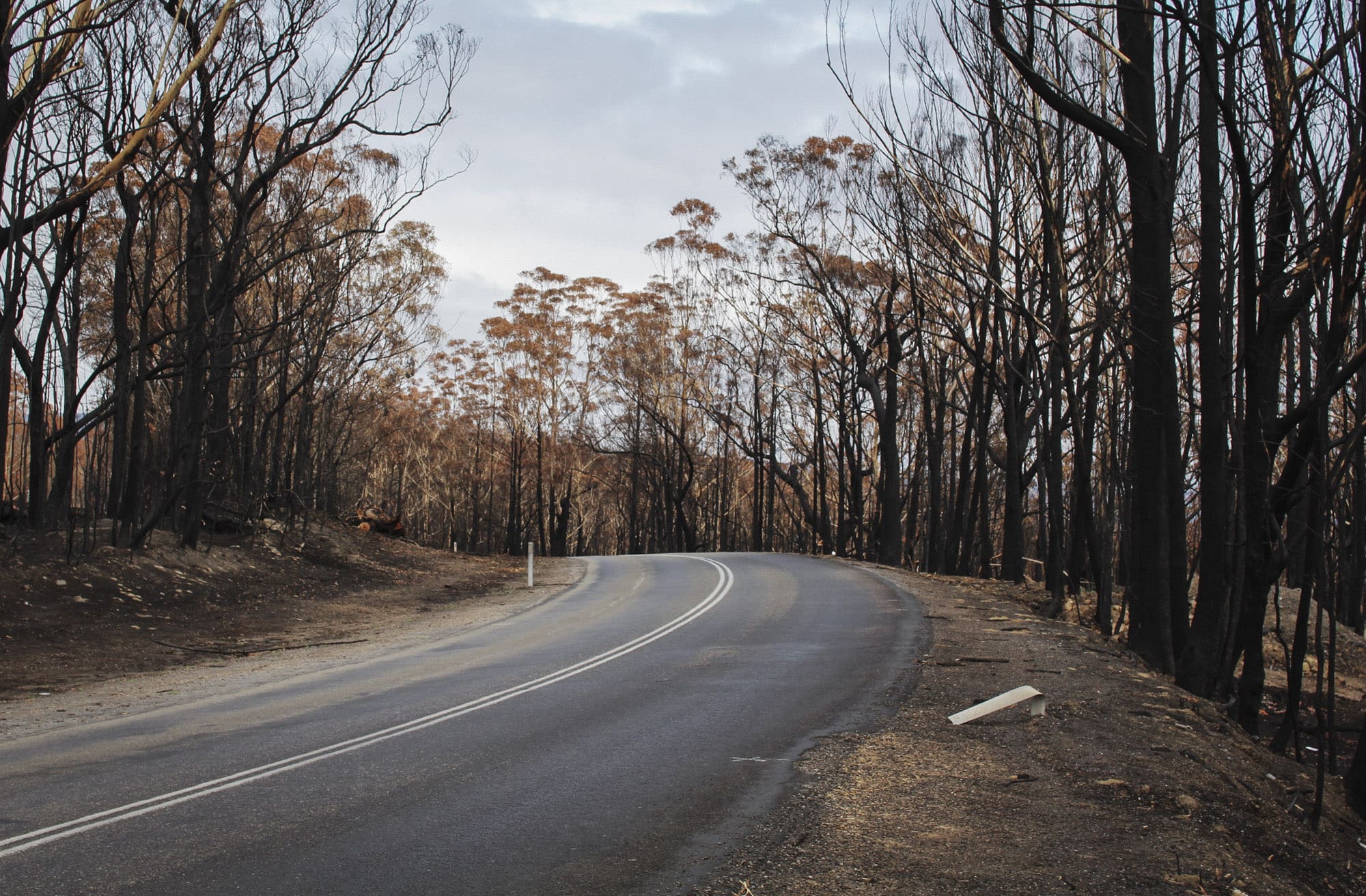
This is the one road leading in and out of Lake Conjola. Fires roared either side of the road as residents tried to evacuate.
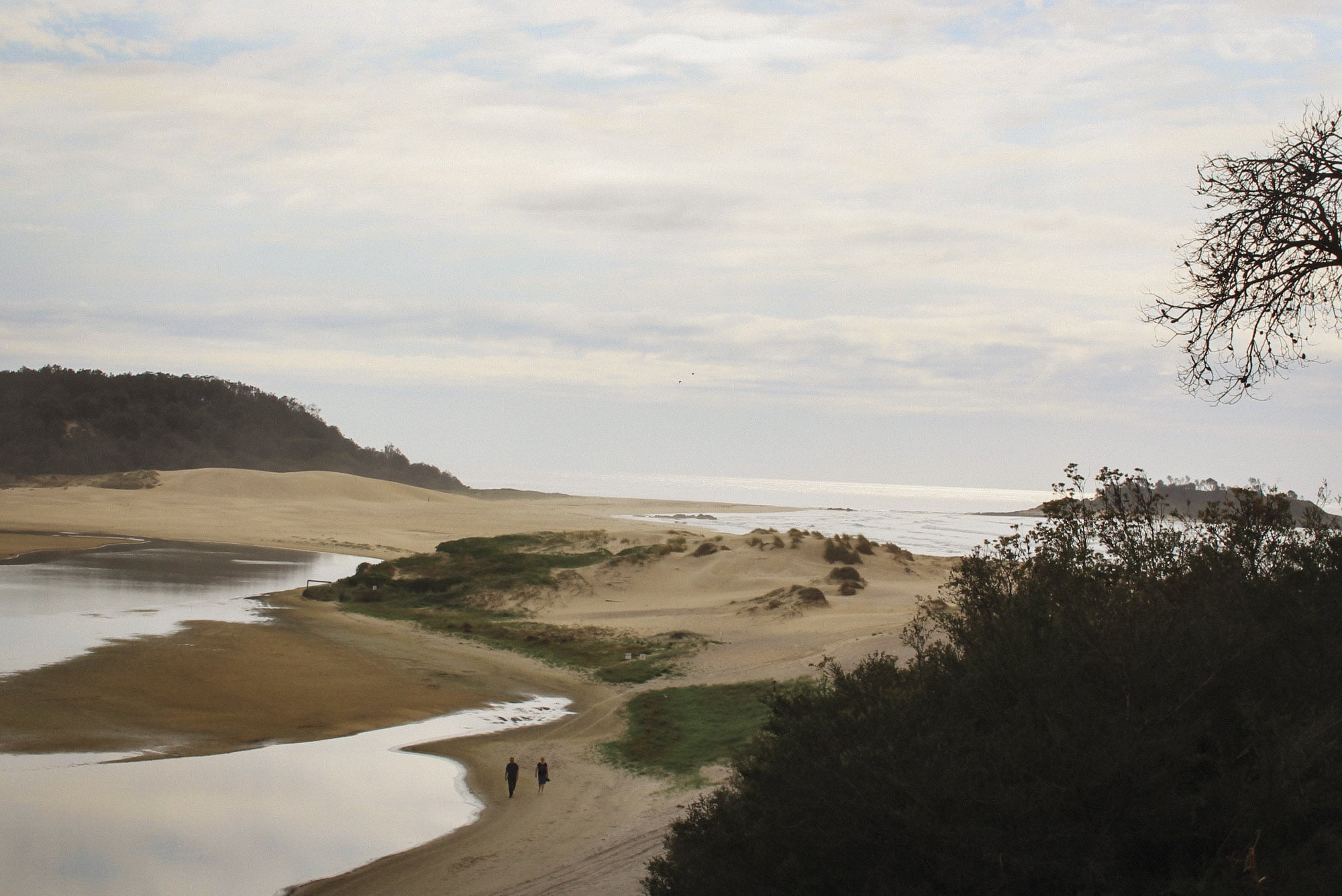
The opening of Lake Conjola is blocked by sand. With all the run-off from the bushfire ash, the lake water has become brown and toxic. This is another issue that the community, council and environmental groups are disputing.
Surfing a Green Island
Sunday Morning we walked down to the famous Green Island surf break at the mouth of Lake Conjola. Looking out at the surf was Dale, a local surfer from Conjola. A soft spoken man who has lived in Conjola for 30 years. He recalls surfing the famous left-hander with only a few people in the 90’s, now it’s close to 60 on a good swell. On the morning of New Year’s eve, when the fires hit lake Conjola, Dale was out surfing a clean 3ft left all morning. When he got back to his house, he could see the fires rolling through. Before he could do anything, he grabbed his family and drove out of the area.
His neighbour was running out of his house and into another neighbour’s house. Disorientated and panicking, he didn’t realise that the house he was running into was also on fire. Dale grabbed him and chucked him into the car, continuing to drive out as fast as he could. Once it was safe to return to his home, he was happy to see that his house was still standing. His shed wasn’t so lucky. Inside was a collection of all his surfboards, boat and tools.
The following week was tough, no water and electricity. He cooked everything on his Webber. Each day, someone from the local community would drop off food for them or ask if he needed a hand. His eyes lit up when he recalled a chocolate cake someone dropped off for him. A few days after moving back into his house, a group of guys and girls pulled up in a ute. They spent the whole day clearing trees around his house. He didn’t know any of them or how they knew about him – he later found out that his daughter had posted on a Facebook group a few days prior.
Out of everything that he said, the most notable was his respect and support for the community. Whether its food, clothes, tools and services.
He vowed to only support those in the towns around him in the future, just as they supported him.
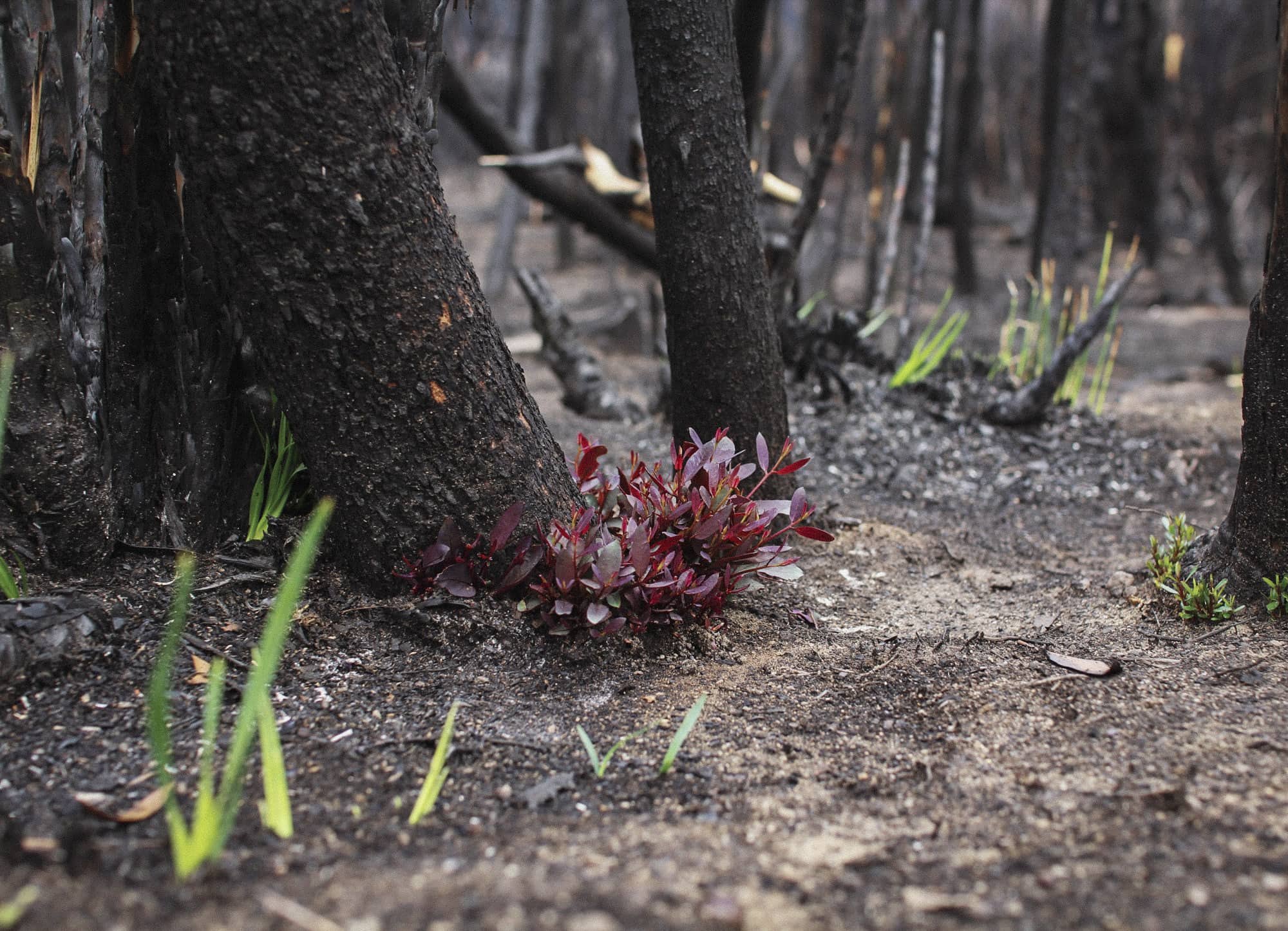
Amongst all the devastation and destruction. Life finds a way.
Ulladulla Evacuation Centre
Ulladulla is only a short drive from Conjola and was the location for the main evacuation centre in the area. As estimated 1500 people stayed at the centre during the fire siege. Unlike the community centre we visited earlier, this was a much more polished system. The room was designed for those affected by the bushfires with a maze of necessary services they might be required: insurance, Red Cross, Lawyers, Mental health services etc.
The mayor of the Shoalhaven, Amanda Findlay, said one of the hardest parts of the recovery stage would be making sure people know about what services are available to them.
We sat down with a group of volunteers, most of them from the Red Cross. We spoke for over an hour. It was an opportunity to vent. Not for us, for the volunteers. These volunteers had been at the receiving end of so much grief that they themselves didn’t have any time to think about themselves. People don’t realise how hard it is to care for others all day, its emotionally draining. One of the ladies said that she went home every night and cried after hearing all of the stories from those who have lost everything in the fires. They seemed relieved after our conversation. They laughed and thanked us for letting them vent.
What we learned.
Amongst all the devastation, destruction and loss. There was an overwhelming feeling of compassion and mateship. People from all walks of life have been affected by these fires. It’s easy to be pessimistic and sceptical in this modern, crooked world. But it’s not until a disaster happens that you start to see how many amazing people are out there. The amount of money raised, people opening up their homes, people lending a hand for no other reason than to help someone else who has lost more than them. It’s beautiful.
After all of the interviews, here is what we learnt:
-
The platform is definitely needed. But not for unskilled city slickers wanting to lend a hand. Liability is too high.
-
The platform has to be really easy to post a job. Small forms. Ability to add more details afterwards if needed.
-
Community groups and organizers will likely upload on behalf of non-tech people affected.
-
The platform needs to be similar – but improve upon – how community Facebook groups and community noticeboards are currently being used.
-
We understand how recovery and rebuilding is being conducted from our Conjola visit. Although other areas will be different, we can use this knowledge as a base for other communities.
-
Long term and professional help. Some manual labour tasks will be finished within a month. But the rebuilding process will take years. The platform needs to be able to adapt to these changes in demand.
Limitations
-
Privacy and security- information being available (phone numbers etc). Facebook groups are great because members need to be accepted.
-
Connecting local volunteers and assistance with those who need it. We need to keep connections local.
-
Confirming that a job/help listing has been completed.
Next Steps.
We will now use all the information we gathered from the trip to make changes to the platform. We will then be able to roll it out in Lake Conjola and surrounding areas. Continuing to gather feedback from users and communities to improve the platform.
I would also like to thank the people of Conjola. Especially Dirk from Lake Conjola Deepwater Resort. If you want to help the communities damaged by the recent fires. Take the weekend off and head down to Lake Conjola. Rent a cabin, pitch a tent, get a beer and enjoy the beautiful town.
